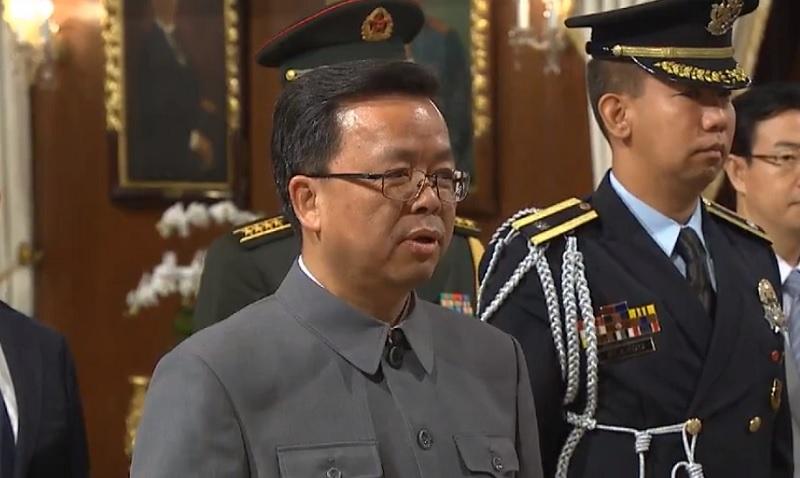China wants to fast-track sea code talks, proposes face to face meet

China wants to fast-track negotiations on the code of conduct in the disputed South China Sea, its envoy in Manila said Thursday night as its preferred 2021 deadline to conclude the document nears.
Negotiations for the code, which China hopes to finish next year, has been been hampered by the COVID-19 pandemic and precluded face-to-face meetings between diplomats from China and Association of South East Asian Nations (ASEAN).
"China hopes that all parties will work harder to speed up the negotiation in a flexible and pragmatic way," Chinese Ambassador to the Philippines Huang Xilian said.
In August 2018, ASEAN and China agreed to a single draft of the code of conduct (COC), with an agreement reached in November 2018 for both sides to finalize the document within three years, starting from 2019.
The first reading of the Single Draft COC Negotiating Text (SDNT) was completed, but the pandemic has stalled talks for the document's second reading.
Beijing, Huang said, has proposed to hold face-to-face consultations in China "once conditions permit to push forward the second reading of the code."
"The pandemic has temporarily delayed the consultation process, but China, the Philippines, as the coordinator of China-ASEAN relations, and other ASEAN countries have been maintaining communication on resuming the COC consultation. Not long ago, an working level online meeting was held successfully," Huang said.
With all the delays caused by the pandemic to regional meetings, the three-year deadline envisioned by China seem to be growing difficult each month.
China's continuing harassment and aggressive actions against claimants such as Vietnam, Malaysia, and the Philippines — all ASEAN members — likewise undermined trust and are seen to heavily impact negotiations for the elusive code, which aims to restrain hostile acts in the South China Sea.
China and five other governments — Brunei, Malaysia, the Philippines, Vietnam and Taiwan — are embroiled in years-long disputes over the South China Sea, particularly in its southern part, called the Spratlys.
Over the years, China, which insisted on historical and indisputable claim over nearly the entire South China Sea, has expanded its presence in the waters, turning several former reefs into artificial islands with military facilities, runways and surface to air missiles.
The Permanent Court of Arbitration in 2016 invalidated China's sweeping claim.
In the case brought by the Philippines, the court ruled that Beijing's claim violated Manila's economic and sovereign rights under the 1982 United Nations Convention on the Law of the Sea.
In a surprise move, President Rodrigo Duterte, who has cultivated friendly ties with China since assuming the presidency in 2016, invoked the ruling in a speech before the UN General Assembly in September.
Dialogue is 'right path'
China has repeatedly said that it does not recognize the ruling.
Huang insisted that "dialogue" is the "right path" to resolving the disputes.
"That is most in line with the interests of the countries in the region, and maintaining peace and stability in the South China Sea is our common task and aspiration," he said.
"We should avoid misjudgment caused by unilateral actions that would complicate the situation in the disputed waters." —KBK, GMA News



